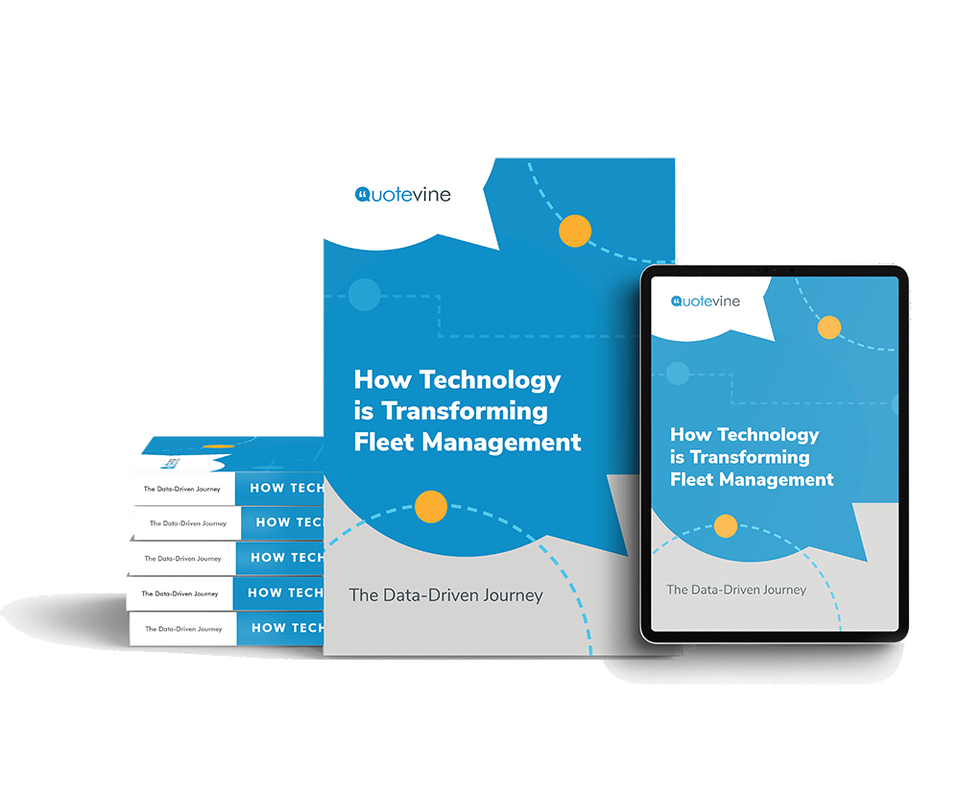THOUGHT LEADERSHIP
Sponsored by Quotevine
How to future proof your fleet management system for next generation vehicles
The world of transportation is swiftly changing. Just as the next generation of vehicles will change how we travel; fleet managers will have to evolve to accommodate new technology and processes. In this article, Quotevine considers how you can future proof your fleet management system for next generation vehicles.
Fleet management is changing. As new technology and regulatory incentives are pushing the industry to an electric future built on principles of sustainability and connectivity, fleet managers will quickly need to evolve to accommodate new technology and processes. Beginning with having the right systems in place to manage transport and teams, those businesses who invest now will have the advantage when leveraging new tools to create a more efficient, effective and future-proof fleet.
In fact, current estimates forecast that EVs will represent 10% of the total automotive market share by 2024, with corporate fleets further pressured by CSR initiatives and cost incentives. So, while electric vehicles are by no means new, a combination of factors is driving their adoption at a particularly rapid rate, with 30X more electric vehicles on the road now than eight years ago, and registration for EVs more than doubling in the midst of the global pandemic.
Yet while the demand is increasing, the current legacy systems in place are not ready for the future focused demands of the fleet management industry. The evolution of engines for example, has moved in parallel with the ever-increasing role of technology in maintaining and analysing vehicle performance. Mobile data systems, known as telematics, can capture a range of information including location, speed, idling time, harsh acceleration, fuel consumption and vehicle faults.
According to Berg Insight, there will be 159 million telematics units installed across the globe by the end of this year meaning this information will become an essential part of running a high-performing operation for fleet managers and auto-financiers. Legacy systems, however, are not ready for this information-rich future

There are three main risks for fleet managers currently on traditional solutions:

George Ormsby, Head of SME, First Citizen Finance
- Cloud data will become the new fuel
As more data becomes available about the way, modes and routes we travel, fleet managers will need to be able to use this information to deliver cost savings and create strategies. Legacy solutions lack the flexibility to integrate the data output of modern vehicles, leaving fleet managers in the dark about the best way to improve their processes. - Next generation fleets are more complex
Traditional vehicle fleet management software is based on a fixed model of vehicle operation, built around matching vehicles and drivers and monitoring life cycles through certain stages. Electric vehicles and flexible fleets add new complexity, with considerations such as usage efficiency, battery life monitoring (including moving batteries between vehicles) and trip-based fleet management. - Technical debt prevents easy integration with other tools
As technology plays a greater role in transport, new software providers will create innovative solutions to drive greater visibility, efficiency and performance. Fleet management systems are the natural nexus for these tools but making the most of them will require seamless connectivity. Many legacy solutions are, however, unable to integrate with cloud-native offerings, or the integrations must be built manually, at significant cost to time and resources.
The Future Proof Fleet Management System
To future proof your fleet management system for next generation vehicles, auto-financiers and fleet managers need to begin planning their cloud transformation. As fleet management goes digital-first, it’s essential to have the right tools to guide your strategy moving forward, by choosing a modern fleet management system that has the right capabilities to evolve with the next generation of vehicles. In the fast-moving world of transport, it’s essential to be working with real time visibility and information. Cloud solutions update instantly so you can be sure that you and your customers are always looking at the right data, to immediately show your value.
As the volume of insights generated by vehicles increases, so does the risk of ‘data blindness’. Fleet managers will need to find a simple data management solution, to be able to centralise and manage your data at a customer, vehicle and company level to find insights that can drive results. Furthermore, as your technology-stack becomes more complex, automation can reduce time spent on manual tasks such as credit checks, data management and approvals. By eliminating unnecessary work, you can spend more time focusing on customer service and building relationships, as different customers will inevitably have different software requirements. To stand out in this ever-growing industry, you need to be able to accommodate, advise and adapt to new requests and commercial strategies.
In a world of changing mobility, fleet managers need the right support and tools to deliver results for their businesses. Your choice of fleet management system will play a key role in providing that support by bringing together the right information, software and collaboration opportunities. As the world of fleet management becomes more competitive, future-proofing your business and investing in the right infrastructure must be a priority.

DOWNLOAD THE WHITE PAPER
For more industry insights, download your free white paper now or contact Quotevine.
Email Address: robert.murray@firstcitizen.ie
Telephone Number: +353 (0)1 884 6743